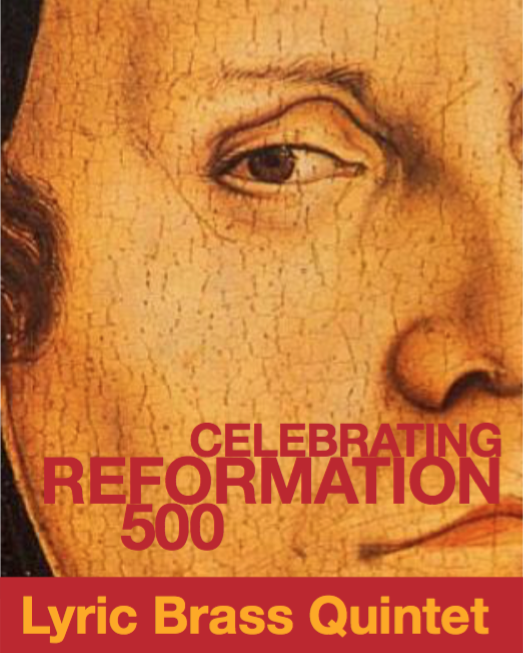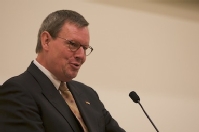Page 9 • (816 results in 0.079 seconds)
-
Marking 500 Years of Lutheran Education1517-2017In his passionate letter to the political leaders of Germany, Martin Luther asked them to create an educated nation from a largely illiterate and impoverished populace. The request seemed utterly preposterous to many who read it. And yet who could have known in 1524 that a letter penned by a professor from a little-known university would reshape not only education but also global cultures? For, indeed, education and literacy have now become
-
aspects of German cultural and history. Her research and publications are focused on the role of the artist in public discourse in East and West Germany, as well as on the exhibition of contemporary art as a cultural and political force in the Cold War era and today. Her most recent work deals with contemporary art and cultural integration. In addition to teaching on topics such as gender issues, identity, and memory in modern and contemporary art, Heather is Coordinator of the University Gallery
-

the Düsseldorf region of Germany. He networked with other brewers and conducted online research to guarantee the recipe was right and, more importantly, authentic. They even altered the water to create a similar mineral content to that of the beer von Bora would have brewed. The result of the combination of the perfect water, malt and yeast? A craft beer that offers a nod to its German roots while offering a modern flavor that’s hard to resist. “Crisp and malty is what we’re aiming for,” Thoburn
-

case the story of Martin Luther and his journey from young law student to monk, to pilgrim, to theology professor, to critic of the Roman Church, to heretic and fugitive, and finally to founder of the Lutheran Reformation, which we celebrate around the world this year on its 500th anniversary,” Kracht says. “The music is descriptive of that narrative, using both music from Luther’s own time as well as music of my own composition, in a blend that ranges from Renaissance sounds to modern.” The piece
-
in employment and occupation occurred with respect to women. Recent data from the PCW Women in Work Index, which rates countries based on equal pay and access to job markets, reveals that Austria is one of the worst performing countries in the Organisation for Economic Co-operation and Development (OECD) when it comes to equality for women. Although Austria’s separate gender roles model has provided a popular functional system in years past, many see it as a modern constraint. The “homemaker
-

February 2, 2009 Diplomat explores Jewish-German relations By Chris Albert More than 150 people showed up to hear the Consul General of Germany (based in San Francisco) Rolf Schuette talk about Jewish-German relations today. Before a crowded room last week in the UC, Schuette said he would dive into the topic that is not easy, but after visiting PLU in 2007 felt it was a chance he couldn’t pass up. “It’s not only a professional duty for me, but it is also something dear to me,” he said. Consul
-
diversity and justice are intimately connected to the study of the tragedy of the Holocaust. Students can see that marginalization of a minority group, such as the Jews of Nazi Germany, can lead to life-threatening situations culminating in one of the world’s modern genocides. Issues of distortion and denial make the process of reconciliation and healing less likely and serve as an insult to the memory of all those whose lives were destroyed in the Holocaust. Conference ScheduleCheck out this year’s
Powell-Heller Holocaust Education Conference12180 Park Avenue South, Tacoma, WA 98447-0003 -
? And most importantly, and most uncomfortably, how could God let genocide happen? The ability to ask these tough questions was encouraged and taught to me during my time in the classroom at PLU as well as studying abroad. When I studied away in Germany and had the opportunity to visit a concentration camp I was sufficiently disgusted as people smiled and took “selfies” next to the “Arbeit Macht Frei” sign at the entrance. PLU had taught me better. PLU forced me to never think of genocide as
-
? And most importantly, and most uncomfortably, how could God let genocide happen? The ability to ask these tough questions was encouraged and taught to me during my time in the classroom at PLU as well as studying abroad. When I studied away in Germany and had the opportunity to visit a concentration camp I was sufficiently disgusted as people smiled and took “selfies” next to the “Arbeit Macht Frei” sign at the entrance. PLU had taught me better. PLU forced me to never think of genocide as
-
? And most importantly, and most uncomfortably, how could God let genocide happen? The ability to ask these tough questions was encouraged and taught to me during my time in the classroom at PLU as well as studying abroad. When I studied away in Germany and had the opportunity to visit a concentration camp I was sufficiently disgusted as people smiled and took “selfies” next to the “Arbeit Macht Frei” sign at the entrance. PLU had taught me better. PLU forced me to never think of genocide as
Do you have any feedback for us? If so, feel free to use our Feedback Form.


